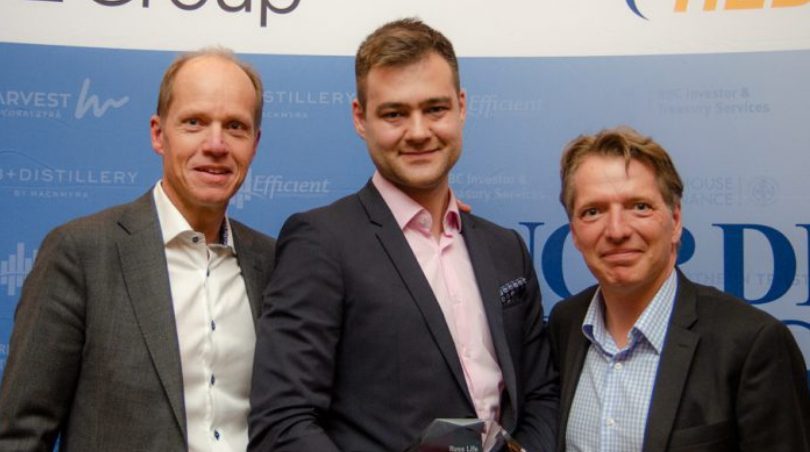Life Settlements Sector Can Shine In Low-Return World
By WealthBriefing
Tom Burroughes, Group Editor , London , 22 July 2020
Life settlements – what are they and why should investors be interested? A secondary market in the US and certain other countries’, life insurance policies have been around for several decades, and are not quite the niche they once were. This publication spoke to a firm operating in the space.
The hunt for an asset class that doesn’t move in the same way as others is a constant wealth management diversification quest. The secondary market for life insurance in the US is a potential solution, so advocates say. With interest rates low or even negative, and vanishingly tiny bond market returns, this area deserves attention.
Investment houses such as Apollo, KKR, Carlisle, Blackstone and others have entered into the game, which remains an overwhelmingly North American one because US and Canadian laws enable such a market (a third is in Germany). (In the US, 45 states regulate transactions in such life policies.) Non-Americas investors, however, such as those in Europe and Asia, are waking up to this area, a Nordic region-based firm argues.
Life settlements can be seen in many ways as an alternative form of fixed income, Jonas Martenson, founder and sales director, Ress Life Investments, told this news service recently. (Ress Life Investments, which is managed by Ress Capital, is listed on the Nasdaq Nordic market.) Martenson and colleagues are cranking up their campaign to win clients.
Life settlements involve selling a life insurance policy to a third party. The buyer, who takes over ownership of the policy, takes over the premium payments in exchange for the death benefit when the insured dies. US legal rulings have allowed life policies to be traded with the same ease as bonds or stocks. In the 1980s, the market was stimulated by AIDS victims cashing out policies early. As
the market developed it drew controversy and the kind of tags that might give pause, such as a “morbid niche” (US News, August 2017), but awareness of its benefits has grown. As many people allow their policies to lapse rather than claim back some of their premiums, defenders of the market say they are doing millions of financial consumers a favour.
An insured may choose to sell his or her policy instead of surrendering it to the insurance company because an investor will typically pay more for the policy, usually 10 to 25 per cent of the death benefit. The real driver of the sector has been retired people who did not need the money. In the US, nine out of 10 policies lapse and are not called, Martenson said.
The total life insurance market is about $20 trillion in face value – a huge field and the estimated volume of policies that are sold is $4-5 billion annually.
After fees, life settlements generate returns of between 7 to 8 per cent, a consistent level that’s very appealing at a time of low/negative rates and when people seek assets that aren’t correlated to stock, bond and other markets, he said.
The Ress Life Investments portfolio contains about 300 life insurance policies, with a total face value of more than $680 million. The fund has monthly subscriptions and redemptions. There is a fixed management fee of 1.5 per cent per annum and a 15 per cent performance fee above the hurdle rate (4-week US T-bill + 1 per cent) with high water mark. The annual performance fee is capped at 1 per cent
From niche to larger
Martenson, who has worked at a variety of financial organisations – Merrill Lynch, Schroders and Hypovereinsbank, among others – said that he came across life settlements as a market when he was working at Merrill Lynch. Martenson worked with a Swedish family offices and launched a life settlement fund in 2011, developing a strategy with some external investors as well as from the family office. The pension fund of Volvo got involved.
“Five years ago we wanted to expand more around Europe and into Asia. This is a very international asset class,” he said. The business has raised $185 million of capital.
However, the market has faced challenges, Martenson said. The US life insurance market has strong lobbying power and firms don’t like life settlements and how people are made aware of the way in which these policies are sold.
The devil in such investments is the detail. With life settlements, managers must accurately measure mortality rates. If mortality is misjudged – people live longer than expected – then returns to those buying life policies will be squeezed. This factor is constantly reviewed. Asked about the sensitive subject of COVID-19 and any impact on mortality rates, Martenson said the number of policies in his portfolio aren’t large enough for the pandemic to affect mortality calculations.
Awareness is growing, Martenson said. In Asia, family offices in Singapore have been interested, he said. His firm is planning to take on additional staff and expand so that it can raise more capital.
The asset class, his colleague Cristina Lugaro told this news service, appeals at a time when some asset classes such as hedge funds are seen, in areas such as Scandinavia, as having failed to deliver.
People should not conflate LS with Catastrophe Bonds, (“CAT bonds”) have very different cash-flows and pay-out structures, she said. For a life settlements portfolio, premiums are paid continuously and when a policy pays out the net asset value increases. This is opposite to most other asset classes where values increase gradually and then suddenly drops when a correction occurs.
As the North American and German markets have been made possible in part by legal rulings enabling policies to be sold to third parties, investors and advisors should, of course, keep an eye on any attempts by lawmakers to interfere with this.
FINRA, the US regulatory and industry body, issued this comment about the sector in its advice to clients: “Life settlements have proven profitable not only for institutional investors that purchase policies, but also for the providers and brokers who handle these transactions. As a result, competition among life settlements providers for individuals seeking to sell or otherwise terminate their life insurance policies has become increasingly intense.”
The organisation gave this advice to older citizens thinking of selling their policies: “Life settlements can be a valuable source of liquidity for people who would otherwise surrender their policies or allow them to lapse – or for people whose life insurance needs have changed. But they are not for everyone. Life settlements can have high transaction costs and unintended consequences. And even if you decide a life settlement is generally right for you, it can be hard to tell whether you are getting a fair price.” At a time when, as Martenson says, nine out of 10 policies are never called, it is easy to see why a secondary market is gaining an audience, whatever the occasional growls.
Access to the article WealthBriefing article here
PDF attachment with article text.
About Resscapital
Resscapital AB is an alternative investment fund manager (AIFM) authorised and regulated by the Swedish Financial Services Authority (Finansinspektionen).
We have since 2011 bought a diversified life insurance portfolio on behalf of Ress Life Investments, which is listed at NASDAQ Copenhagen. Proprietary portfolio management systems and pricing models have been developed. The company also collaborates with independent medical underwriters specialising in senior mortality.
The management team has complimentary backgrounds and international experience from having worked at major banks, institutional investors and hedge funds. The board of directors consists of both successful entrepreneurs and senior managers with extensive experience from the financial industry.
See here for more news from Resscapital AB
Attractive Long-Term Returns
Ress Life Investments A/S purchases US life insurance policies in the secondary market. The company owns a diversified portfolio and policies are issued by over 50 highly rated US life insurance companies. The investment objective is to provide attractive uncorrelated returns in USD over the long-term. Ress Life Investments is listed at Nasdaq Copenhagen since 2015.
Attractive risk-adjusted return – the target return is 7% per annum in USD without any leverage.
Low volatility – a well-diversified life insurance portfolio offers investors stable and attractive risk-adjusted returns. Monthly historical volatility during the last five years is 4%.
Risk diversification – the return profile of the life insurance portfolio is characterised by low correlation to other asset classes, which makes the strategy attractive for investors seeking risk diversification.
Exchange-traded – the company is listed at NASDAQ Nordic and a market-maker provides daily prices.
Ress Life Investments A/S is a limited liability company incorporated in Denmark. The company is an alternative investment fund (AIF) managed by Resscapital AB, a limited liability company incorporated in Sweden. Resscapital AB is authorised as an alternative investment fund manager (AIFM) and supervised by Finansinspektionen, the Swedish Financial Supervisory Authority.
The depositary for Ress Life Investments A/S is Artha Fondsmaeglerselskab A/S. The administrator is Citco Denmark ApS, which is part of the Citco Group. The independent board consists of four members with extensive experience from the financial markets. Ress Life Investments A/S is audited annually by Deloitte.
Ress Life Investments A/S is admitted to trading and official listing on NASDAQ Copenhagen. The company’s short name is RLAINV, ISIN DK0060315604. Current share prices can be found under the segment – Alternative Investment Funds on NasdaqOMXNordic.
Danish and Swedish retail investors and professional/accredited investors may also subscribe for shares on a monthly basis at the company’s current net asset value per share.




